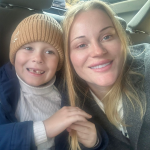Why Should Children with Autism Avoid Sweets?
Many parents of children with autism or autism spectrum disorder (ASD) eventually encounter the recommendation to eliminate sugar from their child’s diet. There are several reasons why specialists may advise avoiding sweets for children with autism.
Top Reasons Why Children with Autism Should Avoid Sweets
Behavioral Issues: Some children with autism may experience difficulties with self-regulation and behavior control. Sweets can cause spikes in blood sugar levels, leading to hyperactivity or irritability. In some cases, sugar may exacerbate already existing behavioral issues.
Digestive Problems: Some children with autism may have digestive issues or sensitivities to certain foods. In such cases, sweets, especially those containing artificial additives and dyes, may worsen these problems.
Restricted Diet: Children with autism may be selective eaters and adhere to a limited diet. This can lead to nutrient deficiencies, and if their diet is high in sweets, it could negatively impact their overall health.
- Impact on Dental Health: Sweets can negatively affect dental health, and children with autism, like all children, need proper oral care.
- Food Preferences Indicator: In some cases, a preference for sweets may be linked to specific sensory needs or habits. This may require additional attention to their diet and eating habits.
In 2012, Matthew Pease, a scientist from the Swinburne Centre for Psychopharmacology, conducted a study on the impact of sugary drinks on brain health. The study was monitored using MRI scans. It showed that the brains of those who consumed two sweet fruit drinks per day appeared several years older than those who didn’t consume them at all. The study found a reduction in memory function and a decrease in brain volume among participants.
There are other studies that demonstrate the harmful effects of excessive glucose consumption and sugar-containing products on the brain. For this reason, children with autism are strongly recommended to follow a balanced diet with controlled sugar intake.
The Elimination of Lactose, Gluten, and Casein
Some studies and practical observations suggest that limiting gluten-containing products (proteins from wheat, barley, and rye), as well as lactose and casein (milk protein and sugar), has a positive effect on children with autism. This is because children with autism and ASD often show varying degrees of intolerance to gluten, casein, and lactose. If there are concerns that the consumption of certain foods worsens a child’s behavior or condition, it is advisable to consult a neurologist and discuss a tailored diet.
Stem Cell Therapy as an Alternative to Diets and Medication for Autism
Stem cell transplantation for children with autism is a procedure practiced in many countries worldwide. Results show that this therapy is more effective than many other practices. For example, according to internal statistics from the Mardaleishvili Medical Center, cognitive test results improve by 65%, and overall positive dynamics are noted in 91% of patients. While stem cell transplantation does not fully cure autism, it provides a significant developmental boost, allowing the child to adapt better to social life.
Learn more about stem cell transplantation from the specialists at the Mardaleishvili Clinic in Georgia.
Autism Treatment Center Videos
Autism treatment with own stem cells
Cord blood association congress
International Quality Crown
Autism Treatment Reviews
Autism treatment with own stem cells
The story of Alessandro (6 years old)
Autism Patient Testimonial - Stem Cell Treatment
Clients Testimonials

Review by Anastasia, mother of Yusup (8 years old) Read More

Feedback from Nathalie, mother of Andre (9 years old) Read More

Feedback from Yulia, mother of Emily (7 years old) Read More

Feedback by Everita, Katrina’s mother (5 years old) Read More

Feedback from Igor, David’s father (12 years old) Read More












